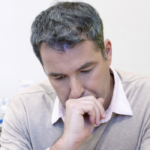In our previous blog we discussed making mistakes. We looked at how, as human beings surviving on planet earth, mistakes are in our nature. No matter what we do, how we live, or who we are, at some point in time in our lives, multiple times over, we are going to make a mistake. Mistakes are an inevitability, but they do not have to be a sentencing in our lives. Realizing that everyone makes mistakes, and makes quite a lot of them, we can start to look at the how’s and why’s of those mistakes and the effect those mistakes have on people’s lives. If we had a total meltdown and lamented every mistake we made every time we made one, we’d be in a poor position in life. Riddled with the anxiety of having to live through another mistake, we would never be able to function in life- and that is no way to live.
Mistakes are not a matter of being made or not made but how we deal with the mistakes we’ve made. What do we do when we make a mistake? Do we run away from them, lie about them, hide them, try to cover them up, fix them ourselves to no avail? Or are we honest about our mistakes, apologize for them, amend them, and ask for help in taking care of them? More importantly, what do we learn from our mistakes? How do we look at the existence of mistakes? How do we let mistakes affect us?
We might be perfectionists and allow mistakes to define us, taking on a grandiose assumption that everything we do in life affects our worth and quality as a human being. If we realize this isn’t true, we can look at mistakes in a different way.
Mistakes are learning opportunities
When a machine like a computer makes an operational mistake, there is usually an answer as to why. Engineers have created entire manuals dedicated to troubleshooting and figuring out why certain mistakes are being made by machines. We aren’t machines, but we can troubleshoot what is going on with us. We can figure out where our thought process came from, and where our thought process needs to go in order to amend the effects of our mistakes. We certainly don’t shame, guilt, or punish a machine, but we tend to do the same to ourselves. What we can do is use each mistake as a learning opportunity to make us run better, more efficiently, and respond differently so that the next time a mistake comes through, we are better prepared to handle it.
Tree House Recovery of Orange County, California is a premier men’s addiction treatment facility that uses eight different modalities to help our men become the best versions of themselves they can be. We teach our men that every day of their journey is something to celebrate, and that recovery isn’t a sprint– it’s a marathon. By showing our men how to celebrate each day’s victories, we show them that self love isn’t about what we have or haven’t done. It’s about getting a little closer to where we want to be. To get started with Tree House Recovery, call us today at (503) 850-2474




